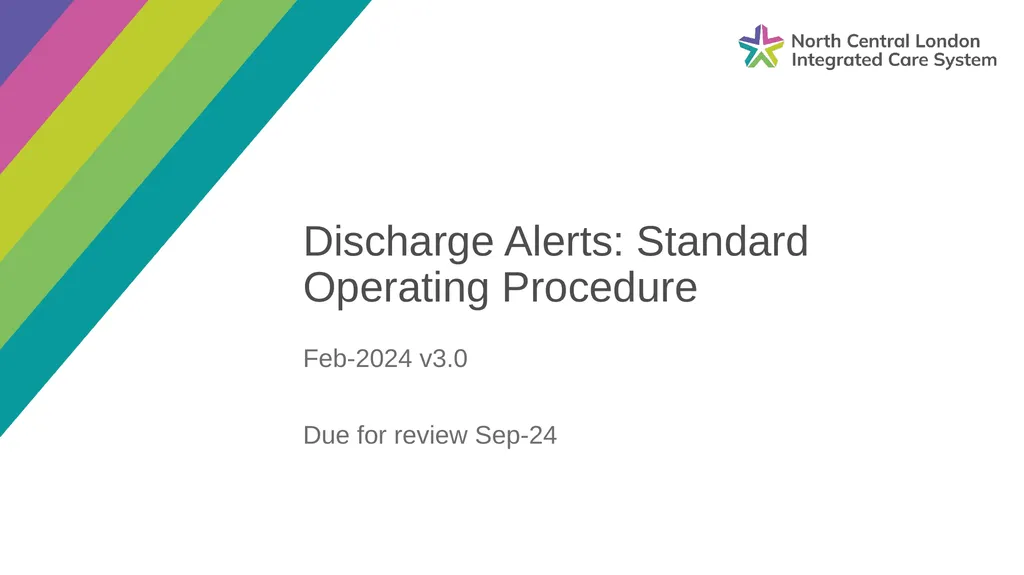
Author : phoebe-click | Published Date : 2025-07-18
Description: Discharge Alerts: Standard Operating Procedure Feb-2024 v3.0 Due for review Sep-24 Introduction This document is designed to standardize the operational procedure for all North Central London (NCL) Hospitals Discharge Systems when anDownload Presentation The PPT/PDF document "" is the property of its rightful owner. Permission is granted to download and print the materials on this website for personal, non-commercial use only, and to display it on your personal computer provided you do not modify the materials and that you retain all copyright notices contained in the materials. By downloading content from our website, you accept the terms of this agreement.
Here is the link to download the presentation.
"Discharge Alerts: Standard Operating Procedure"The content belongs to its owner. You may download and print it for personal use, without modification, and keep all copyright notices. By downloading, you agree to these terms.













